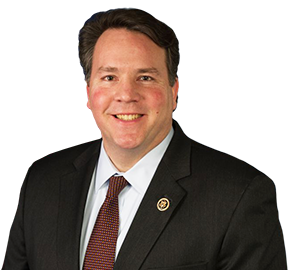A bill designed to develop carbon capture infrastructure throughout the United States has gained broad support from West Virginia’s congressional delegation.
Announced Wednesday, the Storing CO2 And Lowering Emissions [SCALE] Act would support the buildout of infrastructure to transport carbon dioxide from sites of capture to locations where it can be either used in manufacturing or sequestered safely underground.
U.S. Sen. Joe Manchin, D-W.Va., chairman of the Senate Energy and Natural Resources Committee, and Sen. Shelley Moore Capito, R-W.Va., top-ranking Republican on the Senate Environment and Public Works Committee, joined nine other Democratic and Republican senators to introduce the legislation.
Rep. David B. McKinley, R-W.Va., top-ranking Republican on the House Subcommittee on Environment and Climate Change, joined two Democrats and a fellow Republican to introduce the SCALE Act late in the last previous congressional session in December and supports a House version of the bill.
“Measures like these will push our clean energy objectives forward while supporting thousands of clean energy, infrastructure and manufacturing jobs across the country, including in traditional energy producing communities like those in West Virginia,” Manchin said in a statement.
“This is a commonsense, win-win bill that will help lower carbon emissions and create jobs through the construction of pipelines,” Capito said in a statement.
Rep. Alex Mooney, R-W.Va., has agreed to cosponsor the bill, saying that it would help fund the infrastructure necessary for the mass deployment of the carbon capture technology.
Rep. Carol Miller, R-W.Va., has yet to sign on to support the SCALE Act. Miller said she is committed to growing West Virginia’s energy industry by investing in carbon capture and other technologies that elevate West Virginia’s energy commodities, including coal, to modernize and innovate coal mines.
Capturing, removing and storing carbon is seen as critical in the struggle to slow climate change, and politicians representing constituencies like West Virginia where coal still plays a major role in the economy and electric generation have embraced developing technologies to make those processes easier as a way to keep coal in the energy mix amid the country’s shift away from coal and toward reducing emissions.
In September, the International Energy Agency said that carbon capture, use and storage technologies are the only group of technologies that contributes both to reducing emissions in key sectors directly and to removing carbon dioxide from the atmosphere to balance the emissions that are hardest to prevent, which the agency noted is a critical part of reaching the net-zero emissions goals that a growing number of governments and businesses have set for themselves.
Many experts have viewed carbon capture and storage as expensive and inefficient. But the number of carbon capture, use and storage projects announced since a 2018 tax credit expansion for those technologies has grown to more than 30, according to a database maintained by the Clean Air Task Force, a nonprofit that advocates for clean air measures.
DST Innovations, a United Kingdom-based technology company, announced plans in November to build a reactor next to a source of coal in West Virginia to reduce the coal to hard carbon that can be used to create batteries and supercapacitors.
A summary of the SCALE Act notes a “chicken and egg challenge” in which carbon dioxide transport and storage infrastructure must exist or at least be certain to be built before CO2 capture projects can be committed, but capture projects must also exist or be certain before the infrastructure can be committed.
The SCALE Act would establish a program to provide flexible, low-interest loans for carbon dioxide transport infrastructure projects and grants for initial excess capacity on new infrastructure to encourage future growth.
The legislation would also increase Environmental Protection Agency funding for permitting carbon storage wells and provide grants for states to establish their own permitting programs in addition to grants to state and local governments to get carbon use products for infrastructure projects.
The bill’s supporting stakeholders include the Clean Air Task Force, the National Wildlife Federation, the United Steelworkers, General Electric Gas Power and the American Federation of Labor and Congress of Industrial Organizations (AFL-CIO).
The Sierra Club declined comment on the SCALE Act.

